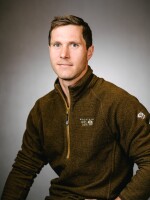Nearly two dozen faith leaders gathered at the state Capitol on Thursday to oppose legislative efforts to change Proposition 3. They were part of an even larger group of religious and community leaders — which did not include leaders from the Church of Jesus Christ of Latter-day Saints — who signed a letter to state officials urging them to oppose any legislation to change voter-approved Medicaid expansion under Proposition 3.
“While at times the government does indeed help make God’s work happen in this world. Government also at times prevents it from happening in this world. And when that happens it is important for people of faith to speak truth to power,” said Rev. Scott Hayashi, representing the Episcopal Diocese of Utah.
Hayashi was one of the five original sponsors who filed the initial paperwork to get Proposition 3 on the ballot for Utah voters in October of 2017.
The proposal by Sen. Allen Christensen, R-North Ogden, altering the Medicaid expansion bill was put on hold in the state Senate on Thursday, awaiting a cost estimate. The legislation has been moving fast, and may reach the House of Representatives for a vote as soon as next week.
During a press conference at the Capitol, Senate President Stuart Adams, R-Layton, said he hadn’t had discussions with the religious leaders who visited the Capitol to oppose the Senate bill.
“We’d welcome them here and be happy to talk to them,” Adams said. Republican leaders believe the 0.15 percent sales tax hike included in Proposition 3 won’t be enough to expand Medicaid to as many people as supporters wanted.
Christensen’s S.B. 96 would cap Medicaid enrollment, add work requirements for some individuals in order to receive health coverage, and shift some people to health plans on the Affordable Care Act exchanges.

Lawmakers hope that those shifted to ACA plans would get subsidies from the federal government to help pay for their commercial plans. But to do so, the state of Utah would first have to receive approval for a waiver from the federal government to modify the local Medicaid program.
Lawmakers including Adams and Rep. Jim Dunnigan, R-Taylorsville, said they were confident that federal approval would be granted by Proposition 3’s original April 1 start date. But there’s no guarantee — a past waiver to expand Medicaid coverage for around 5,000 adults dealing with chronic homelessness or substance abuse took nearly a year-and-a-half to be approved from the Centers for Medicare and Medicaid. Another waiver for more limited Medicaid expansion submitted last June was still not approved by the time Proposition 3 was passed by voters.
Proposition 3 supporters say this new proposal is being intentionally fast-tracked through the legislature.
“The highest principle that we hold is following after what God has done and then bringing that care of God to all people,” said Rev. Hayashi, flanked by religious leaders at the Capitol. “Unfortunately at times in the conversation, it has broken down between that stand and the stand that the most important thing is money.”
Christensen’s bill was put on hold on Thursday only after progressive group Better Utah noted that lawmakers broke Senate rules by deliberating on a bill that had not yet been given a fiscal note, which estimates the financial impact of legislation. Lawmakers argue it’s moving fast in order to get needed approval from the federal government.




